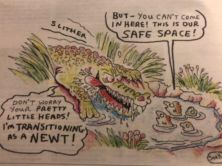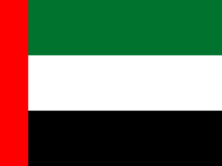Press Council of India spoke out against paid news. (Credit: Press Council of India)
iMediaEthics previously wrote about the Press Council of India’s seminar on paid news. During the seminar, the council reported on an investigation of “the big newspaper houses” that found “many” of those houses permitted paid news.
We wrote to the Press Council of India asking for more information about the seminar and the council. iMediaEthics recently heard back from Sonia Malhotra, a section officer of the India Press Council.
Malhotra sent iMediaEthics the July 30, 2010 report on paid news and India Press Council chairman G.N. Ray’s speech “Save Ethics: Save Media.”
The July 30 report criticized paid news, calling it “advertising in the garb of news.” As the press council stated, “news is meant to be objective, fair and neutral — this is what sets apart such information and opinion from advertisements that are paid for by corporate entities, governments, organizations or individuals.”
“Paid news can be defined as ‘any news or analysis appearing in any media (Print & Electronic) for a price in cash or kind as consideration”
While the “phenomenon of paid news is old, complex and deep rooted in the system,” the report noted that it often isn’t disclosed and is often with respect to political news.
The press council advises Indian news outlets to avoid the blurring of lines between advertisement and editorial in the following ways:
- news outlets should disclose when their news is, in fact, advertisement,
- news articles should feature bylines,
- news and advertisements should be written in different fonts to further differentiate them.
Further, the Press Council advised that newspapers avoid publishing preliminary surveys on exit polls so that the public isn’t influenced: “No newspaper should publish exit-poll surveys, however, genuine they may be, till the last of the polls is over.”
In Justice G.N. Ray’s speech at the “Save Ethics: Save Media” seminar, Ray cited the U.S. Society of Professional Journalists’ preamble and emphasized the importance of minimizing harm.
Reporters should “keep in mind the principle of limitation of harm, which means that there is need for giving proper weight to the negative consequences of full disclosure, creating a practical and ethical dilemma,” Ray stated. He further cited the advice of “ancient Indian sages” to “Tell the truth, tell beneficial words but do not tell the truth which may cause harm.”
The Press Council’s Malhotra explained to StinkyJournalism that the Press Council, created in 1966, is “a statutory authority” to regulate the Indian press. Malhotra wrote:
“The raison d’etre of this unique institution is rooted in the concept that in a democratic society, the press needs to exercise its freedom with responsibility but be amenable to self monitoring and monitoring by its own peer body.”
However, the press council “has no punitive powers.”
The Guardian’s Roy Greenslade recently wrote about paid news in India, noting that a Sunday Times reporter contacted the Times of India’s publisher, Medianet, and was reportedly told how to buy advertorials in the Times of India’s supplement. In response, the Times of India’s chief executive, Ravi Dhariwal, defended the newspaper saying, “There is no paid news in any of our main papers and titles. We do have advertising and promotional supplements which sometimes carry paid features.”
Read Greenslade’s full post here.






Comments Terms and Conditions